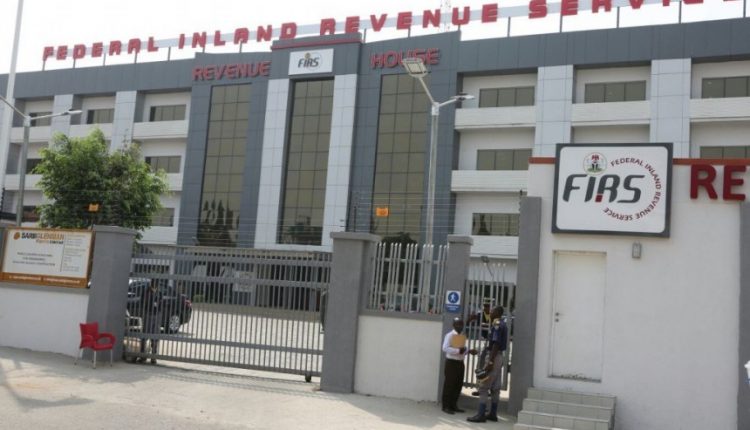Recent media reports that President Bola Ahmed Tinubu has approved the establishment of the Directorate of State Liaison (DSL) under the Office of the National Security Adviser (ONSA) as well as the acquisition of another set of 34 fighter jets and helicopters by the Nigerian Air Force (NAF) are good tidings in Nigeria’s quest to end insecurity. The new initiatives, when actualised, will, to a large extent, curb the high rate of insecurity in the country, particularly, the banditry and kidnapping ravaging the North-west and North-central geo-political zones.
In a statement in Abuja last week, the ONSA said Ms Lami Chinade has been appointed as the pioneer director of the DSL, which will coordinate the new national security arrangement. It added that the director will be reporting to the National Security Adviser, Mallam Nuhu Ribadu. The DSL director is saddled with the responsibility of providing strategic leadership and oversight for the directorate, working closely with key stakeholders at the state and local levels, including civil society organisations.
The scope of the states-federal government joint operation will involve intelligence gathering and sharing between the states and the centre. According to the ONSA, the newly created directorate is part of President Tinubu’s efforts to enhance proactive coordination on national security matters with states and local government areas.
The directorate would be responsible for overseeing the implementation and follow-up of joint decisions between state governors and the ONSA. The key functions of the DSL will include maintaining a comprehensive database of contact persons at the state and local levels and developing community engagement programmes in collaboration with Federal Ministries, Departments, and Agencies (MDAs).
The directorate will play a critical role in ensuring smooth coordination of national security policies at the state and local levels. It will focus on conflict resolution, identifying areas for improvement, and fostering cooperation to enhance national security service delivery across states.
The DSL will act as a liaison between state authorities and the federal government to ensure clear communication, effective collaboration, and alignment of security priorities. According to the ONSA, the creation of the DSL was driven by the need to monitor and assess the impact of national security policies on state governance and local development. It said that the directorate was also designed to facilitate dialogue and negotiations to address potential conflicts between states and national security entities.
The creation of the directorate is, no doubt, a strategic step towards enhancing national security amidst rising terrorism and banditry in the country. The DSL will also ensure that security policies are aligned with the specific needs and realities of each state. This will help address the fragmentation in security efforts and foster a more united and consistent approach to tackling insecurity. The directorate is expected to develop community engagement programmes, which are crucial to gathering local intelligence on a wide range of security challenges peculiar to each state and local government area.
Additionally, it is expected to facilitate a better understanding of local dynamics and closer interaction with communities. This will enable the authorities to preempt security threats and work with local leaders to manage conflicts before they escalate. Similarly, a comprehensive database of contact persons at the state and local levels will ensure timely response during security emergencies.
It will also streamline communication and facilitate rapid mobilisation of resources to areas where they are needed most. Until her appointment, the pioneer DSL director, Chinade, had previously served as head of the Monitoring Unit and senior legal officer at the National Human Rights Commission. She was also the chief operating officer in the downstream operations of a leading petroleum company.
Apparently, to give bite to the joint operations, the NAF is set to take delivery of 24 M-346 Fighter Ground Attack jets and 10 AW-109 Trekker helicopters in order to boost its combat capabilities. The NAF had in June disclosed that it would acquire 50 new aircraft to strengthen its fight against armed gangs and terrorists. Already, the NAF in the last two years had taken delivery of 12 Super Tucano, two additional DA-62 surveillance aircraft and T-129 ATAK helicopters, two Diamond-62 Multi-Purpose aircraft, among others.
The NAF Director of Public Relations and Information, Air Commodore Olusola Akinboyewa, said on Sunday that the Chief of Air Staff, Air Marshal Hasan Abubakar, along with officials from the ministries of defence and finance were in Italy to finalise the acquisition of the jets. Akinboyewa disclosed that three of the 24 M-346 would be delivered by early 2025, while subsequent deliveries would run through mid-2026.
He said the air chief inspected the six M-346 jets earlier purchased by the service from Leonardo, adding that three of the jets were almost completed. The spokesman revealed that the M-346 jets have advanced features capable of both air-to-air and air-to-ground missions, adding that the M-346 would significantly strengthen Nigeria’s air combat capabilities.
Akinboyewa also said the AW-109 would bolster combat support roles such as Combat Search and Rescue, tactical airlift and Medical Evacuation amongst others.
“The M-346 and Trekker acquisitions are key steps towards fleet renewal, in consonance with the CAS Command Philosophy to transform the NAF for greater agility and resilience, with emphasis on the optimisation of force structure and establishment for enhanced operational effectiveness,” he added.
Flowing from the foregoing efforts, it is evident that the Tinubu administration is committed to ending the seemingly intractable insecurity that has not only stifled the nation’s socio-economic and political development for over a decade, but also threatened its sovereignty and territorial integrity.
Blueprint is convinced that with the current initiatives, Nigeria’s security challenges, namely, the Boko Haram insurgency in the Northeast, kidnapping and banditry in the North-west and North-central, secessionists agitations and youth restiveness in the South-east and South-west as well as oil theft and militancy in the littoral Niger-Delta region, will be surmounted.

 2 hours ago
8
2 hours ago
8









 English (US) ·
English (US) ·